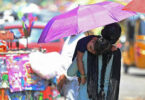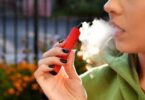Monitoring Desk
HOUSTON: Brace yourself for a one-two punch this allergy season. You can thank climate change and the pandemic for your exacerbated allergy symptoms.
New research shows that pollen season is going to get a lot longer and more intense due to climate change. According to The Conversation, the U.S. will face up to a 200 percent increase in total pollen this century due to carbon dioxide emissions from vehicles, power plants, and other sources. This will cause the spring pollen season to start earlier and last longer.
But there’s another factor that may trigger more intense symptoms this season. Your watery eyes and bothersome sneezing may be more severe after all that hand sanitizing and social distancing during the pandemic.
“It’s called the hygiene hypothesis,” says Bryce Wylde, a functional medicine practitioner in Toronto. “Most of us haven’t been exposed to typical amounts of viruses or bacteria over the last year or two. When that happens, your immune system can become dysregulated. Once you are exposed to seasonal allergens, it is possible that your immune system will overreact, and your symptoms may be a whole lot worse than usual.
While it is important to get tested and identify your specific allergen, it is not always possible to avoid the triggers. But there are ways to reduce your exposure and reaction to allergens.
• Minimize your exposure to inflammatory agents. While you may not be able to avoid pollen altogether, you can steer clear of other inflammatory agents that exacerbate an allergic reaction, says Wylde. For example, avoid sugar and white flour which promote inflammatory cytokines. The same goes for smoke and alcohol which can make your symptoms worse.
• Choose natural products to reduce symptoms. “Homeopathic products such as Similasan Allergy Eye Relief eye drops, activate your body’s own defense mechanisms to address the underlying problem,” says Wylde. Unlike some other allergy products, the drops do not contain dyes, chemical vasoconstrictors, or steroids so they are safe to use any time. Using a neti pot or saline nasal drops or spray can also help hydrate the sinus passages and clear mucus
• Eat more brightly colored fruits and vegetables. “The mast cells, which are part of the immune system, react to allergens by releasing histamines, which cause itchy eyes, runny nose and sneezing,” says Wylde. “Research shows that the quercetin in some foods helps stabilize the mast cells before they start releasing histamines. Common quercetin-rich foods include apples and onions.”
• Change the air filters in your heating and air conditioning system regularly. Replace your home filter at least every three months, says the expert, and always use a HEPA filter which can trap and remove 99% of dust, pollen, mold, and any airborne particles with a size of at least 0.3 microns. Change your car filter every 15,00 to 30,000 miles..
• Be aware that some health products can make allergies worse. Wylde says that consuming chamomile, honey and echinacea can cause serious cross reactions if you are allergic to ragweed because they belong to the same botanical family.
• Exercise indoors on days when the pollen count is high or the air appears smoggy. “Nearly every city has a weather network or allergy association that monitors the pollen and smog indexes,” says Wylde, who has been featured in interviews with international experts such as Dr. Mehmet Oz and Dr. Sanjay Gupta.
“The key to beating allergies is to change your behavior before symptoms become severe,” Wylde concludes. “That way you can help your body respond more effectively when it is exposed to allergens and finally enjoy all the good things that the season has to offer.”
Courtesy: (Newsmax)






